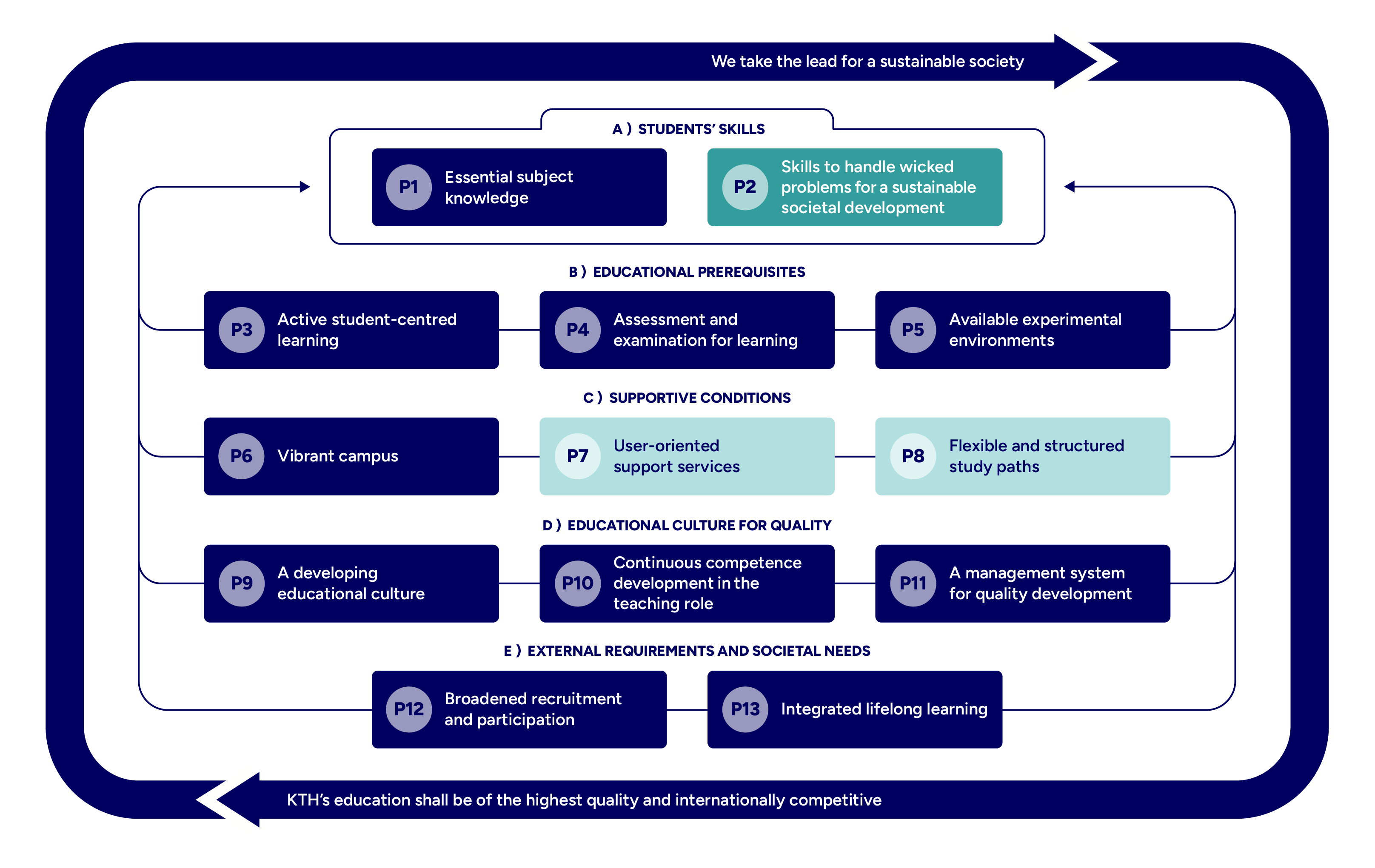A joint structure for project courses in Master's programmes
The project involves developing a structure for how project courses can be organised to support progression in student learning over time and across subject areas. Structural solutions for scheduling and marketing may also be included in a second project part.

Project context
In KTH's educational programmes, project courses play a central role in developing students' practical skills and their ability to apply theoretical knowledge in real-world scenarios. Despite their importance, these courses are often limited by structural barriers. Project courses tend to be strongly tied to specific programmes, which means that scheduling and marketing rarely encourage interdisciplinary participation. In addition, there is a lack of a clear structure for how these courses can be organised to support a progression in student learning over time and across subject areas. These challenges not only prevent effective collaboration between different disciplines but also make it difficult for students to identify and utilise project opportunities that fit their interests and career goals.
Purpose (outcome)
The project aims to create an overall and coordinated structure for KTH project courses. By clearly defining and organising these courses in a way that facilitates interaction between different programmes and disciplines, we want to improve both students' and teachers' ability to collaborate across subject boundaries. Another important goal is to create a progression in course content and learning outcomes that enables students to develop their skills step by step within the framework of project-based learning.
Project results (output)
- Communication Strategy: Develop a detailed strategy for how project course outcomes can be leveraged in student recruitment and external relations. This should include guidelines for using course outcomes in marketing materials such as brochures, website content, and presentations at education fairs.
- Common Scheduling Structure: Create a unified and flexible structure for scheduling project courses, including recommendations for timeframes and deadlines that facilitate coordination across programs and subject areas.
- Milestone 1: Identify and map all existing project courses including their current structure, target groups and scheduling principles (1-2 months).
- Milestone 2: Develop a preliminary proposal for a common scheduling structure and guidelines for course planning (3-4 months).
- Milestone 3: Organise and conduct workshops with relevant teachers and programme directors to collect feedback and revise the proposal (5-6 months).
- Milestone 4: Implement a communication strategy that includes the development of marketing and recruitment materials based on course results (7-8 months).
Time plan
Start date: 2024-06-01
End date: 2025-05-31
Project documentation
If you have a KTH ID, you can read the latest project documents on OneDrive when logged in:
- Poster: Poster_FrU25_2404-KTH_scientific poster_250520.pdf (English)
- Project initiation document: Projektdirektiv_FrU24_2404-KTH_Strukturering av projektkurser_240902.pdf (Swedish)
